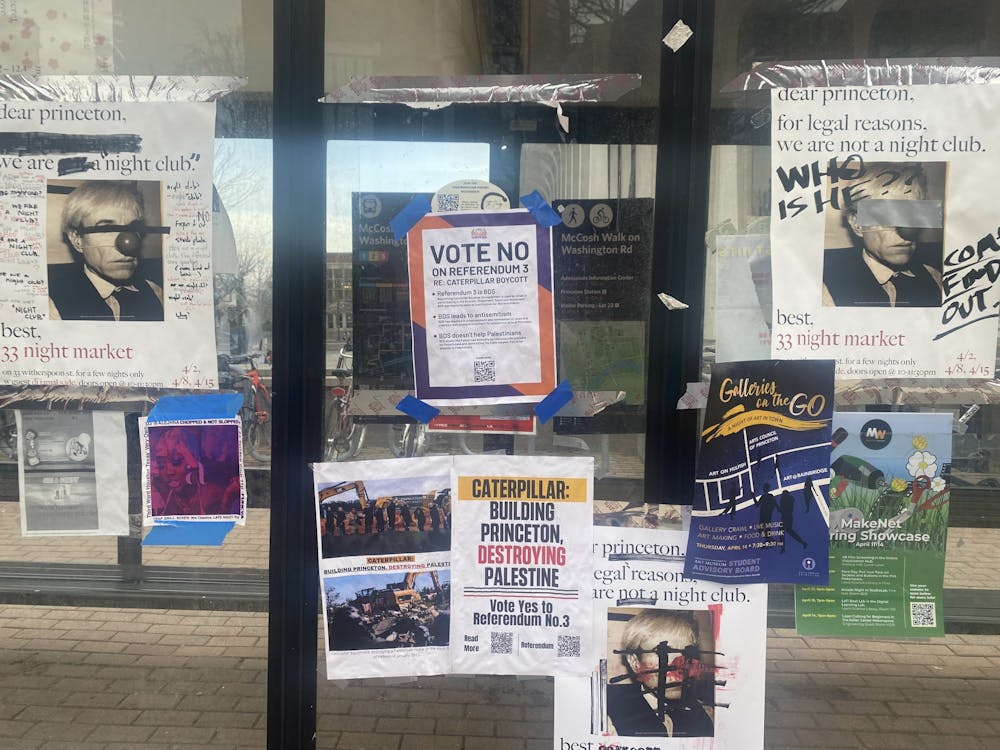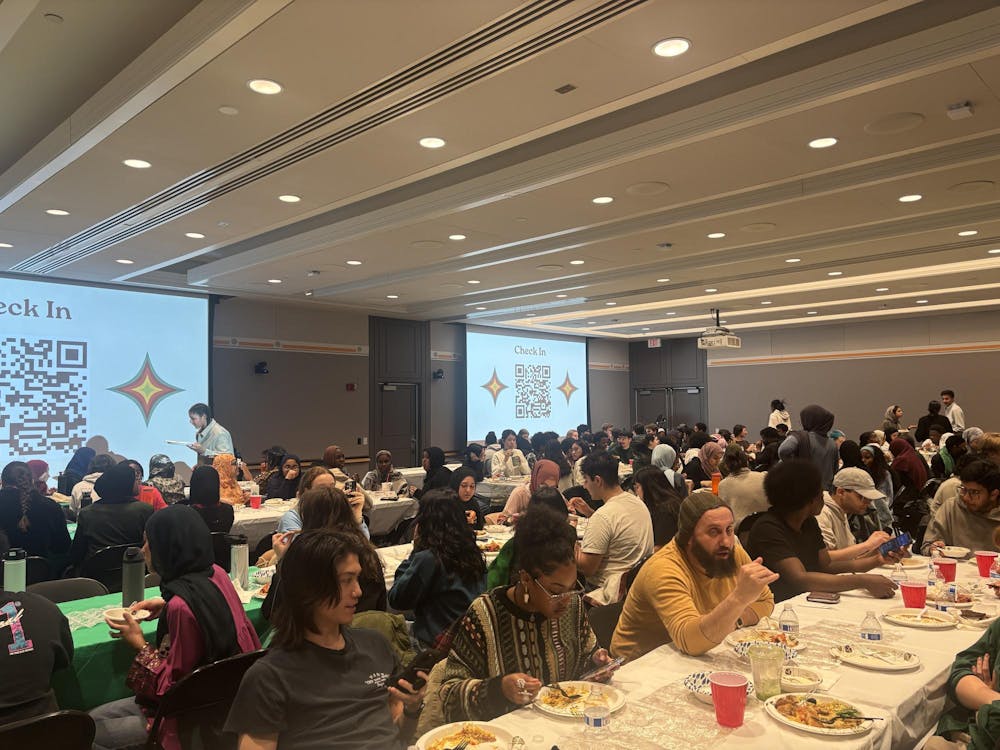Referendum No. 3, which calls on the University administration to halt the use of Caterpillar construction machinery on campus expansion projects, met the threshold to be passed during the Spring Undergraduate Student Government (USG) election cycle this week, according to preliminary election results made public early on Wednesday, April 13.
While not yet officially confirmed or certified, USG Chief Elections Manager Brian Li ’24 said in an interview with The Daily Princetonian that the student body “should be of an understanding that the [election] was procedurally fair and sound.”
Li also clarified that the USG Constitution indicates three criteria for a referendum to be passed by the student body.
The first is that the referendum must not be disqualified by any means. The second criterion is that one-third of the undergraduate student population votes in the election.
For Referendum No. 3, 5,215 undergraduate students were eligible to vote, according to Li. 2,153 students cast a ballot in the election, which constitutes 41.3 percent of the undergraduate student body. Therefore, the Caterpillar referendum has met the first two conditions for approval.
The third criterion states that a majority of votes must be in the affirmative in order for a referendum to pass. By Appendix D of the USG Constitution, abstention votes are excluded from this count.
With 1,124 students voting in favor of this referendum, according to the preliminary results, a 52.2 percent majority of students voted for the referendum; thus, the referendum also met the third criterion.
1,029 students voted ‘No’ on the ballot, or 47.7 percent of ballots cast. 424 students participated in the election but abstained from voting on Referendum No. 3. According to the USG Constitution, the abstention ballots are not counted in the determination of a majority.
Per USG Constitution bylaws, all parties of elections are eligible to submit complaints on election proceedings for 24 hours after the election closes, and results cannot be certified by the chief elections manager until that period is over.
“[Official results] will not be released any earlier than Friday afternoon,” Li said. “It may take longer if we have complaints [about the] results.”
As of midnight on Wednesday night, the ‘Prince’ was made aware of one objection against the election results brought to USG.
Myles McKnight ’23 wrote an email at 11:13 p.m. to USG officers, which he shared with the ‘Prince,’ claiming “an objection to the management of Referendum Question 3.” His email argued that “the ‘abstain’ votes must be counted,” and that the “Referendum should thus fail” in order for the process to be remedied.

Asked to comment on McKnight’s claims, Li wrote in a message to the ‘Prince’ that USG “cannot comment on pending complaints.”
In his email, McKnight claimed that Li previously explained the role of abstentions in the election process in a way that seemingly contradicts the USG Constitution.
According to screenshots that McKnight included in his email to USG leaders, in a text message prior to the start of voting, Li explained to Tigers for Israel President Jared Stone ’24 that abstention votes would be counted “as among the total number of votes cast,” per the email.
In the screenshot, Li seemingly provided Stone with an example of 10 votes, where four were cast in favor, three in opposition, and three abstained. “That’s 40 [percent] in favor,” Li’s message read, seemingly referring to the example.
“Tigers for Israel structured its campaign strategy, in large part, on the information Brian provided to Jared,” McKnight wrote in the email. Opposition campaigners, he added, “encouraged students to abstain; their campaign strategy was materially different than it would have been had Brian informed Jared of a different counting procedure.”
President of the Princeton Committee on Palestine and Referendum No. 3 Sponsor Eric Periman ’23 spoke to the ‘Prince’ about the preliminary results, saying that the referendum party is “incredibly enthusiastic about [the] results as they clearly show [Referendum No. 3] winning the USG election.”
“This campaign was never about dividing the student body,” Periman added. “It was always about raising awareness about the violation of Palestinian human rights and the ways that Princeton is complicit in those violations of human rights.”
At the time of publication, Reid Zlotky ’23, the formal opposition leader of Referendum No. 3, did not provide comment on the matter.
Election results will not be confirmed until after Friday at noon, at the earliest, according to the election rules.
Head News Editor Katherine Dailey contributed reporting to this article.
Andrew Somerville is a Head News Editor who has covered USG, University, and COVID-related affairs.
Correction: A previous version of this article stated that 5,205 students were eligible to vote. In fact, 5,215 students were eligible to vote in the Spring election. The ‘Prince’ regrets this error.








